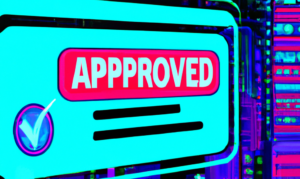When purchasing a new home or refinancing a mortgage, there will be closing costs involved for transaction. The parties these costs are distributed to are the lender, state and local government, and third party service providers necessary to facilitate and close the loan process.
The names of the fees and the dollar amounts listed below are estimated. Depending on the lender, the location of the home, and the property type, there may be fewer or additional fees for the transaction. However, the information below will give you a sense of the true cost of a new mortgage with some variance form what the actual fees will be.
Closing Costs of a Mortgage Transaction
Origination Charges:
| Underwriting | $1,000 |
| Lender Charge (aka Points) | 1% of loan amount |
Loan Service Charges:
| Credit Report | $60 |
| Flood Certification | $10 |
| Tax Service | $90 |
| Mobile Notary | $200 |
| Title Endorsement | $30 |
| Escrow | $100 |
| Title Settlement/Closing | $200 |
| Title Examination | $200 |
| Title Premium for Lenders Coverage | $450 |
| Property Appraisal | $500 |
| Subordination/Resubordinating | $300 |
Taxes & Other Government Charges:
| Recording Deed of Trust | $200 |
| Recording Mortgage/Real Estate Transaction | $200 |
| Ownership Transfer Taxes (purchase loans only) | 1% of purchase price |
Prepaid Charges
| Homeowners Insurance Premium | 0.25% of home value |
| Mortgage Insurance Premium | 0.50% of loan amount |
| Prepaid Interest (interest from closing date to 1st mortgage payment) | 15 days of interest |
| Property Taxes | 1% of property value |
Initial Escrow Payment at Closing
| Homeowners Insurance Payments (6 months) | (Premium ÷ 12) x 6 |
| Mortgage Insurance Payments (6 months) | (Premium ÷ 12) x 6 |
| Property Tax Payments (6 months) | (1% of value ÷ 12) x 6 |
Total Fees based on a $400,000 Purchase Loan
By using a $400,000 purchase loan, then adding up the total from the closing costs outlined above, you can expect the costs (not including any down payment and the initial escrow payment at closing) will be around $19,300.
Fees & Charges Defined
Underwriting
A process that requires both automated and human review of information and documentation collected from a borrower to assess the risk exposure to the lender and to ensure a mortgage borrower is qualified for the loan.
Lender Charge
This fee can vary anywhere from a fixed dollar amount to more common method of charging 0.50% to 1.75% of the mortgage loan amount. This charge is to cover the costs a Loan Officer in charge of working with mortgage clients, guiding them from initial contact all the way into to the mortgage closing process. This person is the primary point of contact between the customer, and the funding source.
Credit Report
Lenders will run a tri-merge credit report for each borrower on the mortgage when qualifying a mortgage applicant for a loan. The tri-merge credit report displays information on the applicants provided by all three credit bureaus, such as credit scores, credit card balances, any credit inquiries.
Flood Certification
Lenders are required to obtain a flood certification for all loans to see if the home is located in a designated flood zone. If a property is in a flood zone, the lender may require the homeowner purchases flood insurance. The premium amount and coverage requirements vary greatly based location and elevation above sea level.
Tax Service
A third-party vendor (Servicing Company) that facilitates the payments of your property tax bills (from your tax impound account). Lenders use this service to prevent tax liens to the property resulting from missed or late payments by the homeowner.
Mobile Notary
A state licensed notary will verify the identity of the mortgage applicants and ensure that all documents requiring signatures are signed correctly to have legal standing. Most notaries meet mortgage applicants in person or a secure internet portal (in states where remote notarization is approved). Once ID is verified and signatures captured, the Notary will place their official seal on all the required documents before completing the signing process and sending them back to the escrow company.
Title Endorsement
This is extended coverage to Title Insurance Premiums that alleviate risks from the existence of any specialized issues that may impact the title to the title and ownership of the property, such as indirect access/entry, encroachments, and usage restrictions.
Escrow
Escrow is a neutral third party that hold funds and handles the paperwork and processes associated with closing the mortgage loan for both refinance and new purchase loan transactions. They make sure that all the funds are distributed to the correct parties and play an important role in the mortgage closing process.
Title Settlement/Closing
The precise definition can vary among companies and among various states, but ultimately this is a fee charged to coordinate and facilitate certain tasks within the escrow process, such as verifying, sending and receiving documents to the Notary.
Title Examination
A service provided by the title company to ensure the property is suitable for being bought, sold, or refinanced. An example would be to ensure the property has no government or county tax liens attached to the title, which could create issues with underwriting qualification if not noticed early enough in the process.
Title Premium for Lenders Coverage
Title insurance is required to protect the lender from issues such as errors and omissions in the trust deed, mistakes in examining property records, and forgery. The title company makes sure there are no clouds on title or issues that may have a negative impact on legitimate ownership once the transaction closes.
Appraisal Inspection
A licensed appraiser is hired inspector by a service vendor that works with the lender to determine the value of your home and providing a comprehensive report to the lender for underwriting review. The person buying the home or refinancing pays for the appraisal fee up front or inserts the fee to be paid through the loan. The lender will use the appraisal report to approve your mortgage loan. A customer has certain rights when paying for this appraisal, such as receiving a copy of it within a certain period of time as required by law.
Subordination/Resubordinating
Any loan secured by the property, other than the primary or first mortgage is a subordinate loan. When a property is sold, the primary mortgage lender gets paid first, then any other loans secured by the property, such as a Home Equity Line of Credit or a 2nd Mortgage; these are known as subordinate loans. The resubordinating process during a refinance essentially puts the original 2nd lien holder back into the subordinate position, because when a primary mortgage is refinanced from one lender to another, there is a temporary moment in time where the second lien holder becomes the first lien holder, so the must relinquish their position back.
Recording Deed of Trust and Mortgage Transaction
A recording fee is charged to record your deed of trust and the mortgage transaction at the local courthouse or county recorder’s office for government record keeping purposes. Once the transaction is recorded properly, it becomes a legal document within the state and county government database.
Transfer Taxes
Imposed by the state or local county jurisdiction. When a property sale occurs, this triggers an ownership transfer from one person or entity to another. This is a one-time expense that occurs each time someone purchases new property.
Homeowners Insurance Premium
This is the annual cost of insuring your home against natural and unintended hazards, such as fire and mold, etc.
Mortgage Insurance Premium
This is the annual cost of insurance that protects the lender or investor of your mortgage against default and loss. This type of insurance is common when the loan-to-value ratio (mortgage balance ÷ property value) of a mortgage loan is above 80%. Some niche lenders can go higher than a 80% loan-to-value (LTV) ratio without mortgage insurance requirements.
Property Taxes
An annual tax on the value of your property imposed by your local county tax assessor. This annual tax varies from state to state and property type. Its common for this tax to range between 1% to 2% of the value of your property annually.
Review Your Closing Costs
Closing costs on mortgage loans vary among states and counties. The fees above are estimates and averages. Use them as a general guide to educate yourself and manage your expectations when shopping for a mortgage loan. It is especially important for repeat mortgage refinance applicants to consider the costs, which could outweigh perceived financial gains from the refinance.






